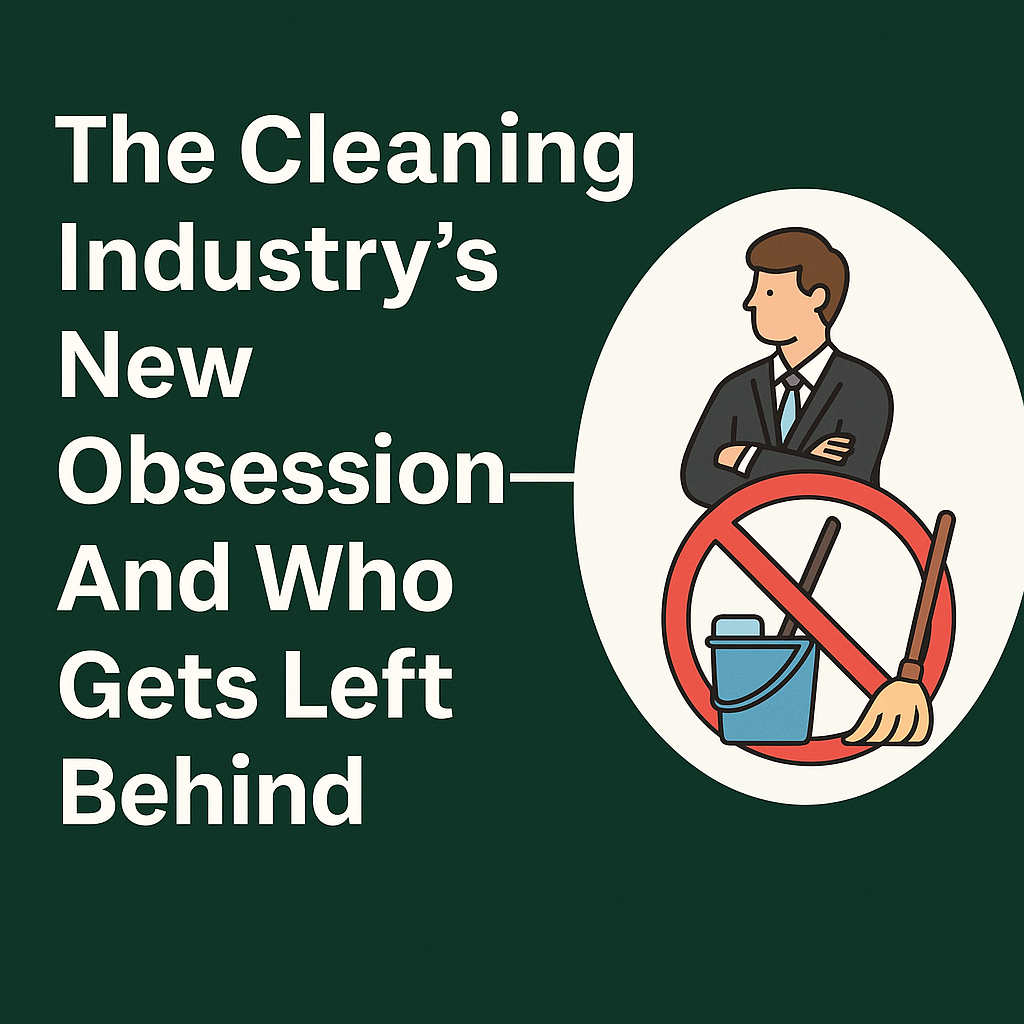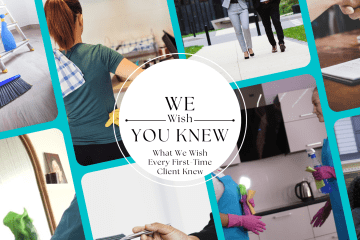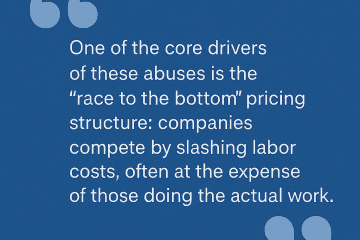The Cleaning Industry’s New Obsession—And Who Gets Left Behind

There’s nothing inherently wrong with wanting to build a business that allows freedom, growth, and scalability. In fact, it’s a goal many service-based entrepreneurs share. But the narrative becomes problematic when it’s framed as superior to the work of cleaning itself—when it starts to sound like the real goal is to escape the labor and the laborers.
“Drop Cleaning” Influencers Are on the Rise—But At What Cost?
If you’ve spent any time on social media lately, you’ve likely come across them: cleaning industry coaches and influencers boasting about how they “never touch a mop or broom” yet claim to make six or seven figures in the industry. Their feeds are full of lifestyle shots, passive income promises, and glossy success stories that sound almost too good to be true.
On the surface, it’s a compelling message: build a business that doesn’t require you to do the cleaning. Scale quickly. Automate everything. Stay hands-off. Make millions.
But beneath the surface of this drop-cleaning dream is a very real concern—one that doesn’t get nearly enough attention: What message does this send about the people who actually do the work?
The Rise of the “Never-Clean” Cleaning Mogul
These influencers are promoting a version of success in the cleaning industry that glamorizes detachment from the very service that built the industry to begin with. Their advice? Get out of the field as quickly as possible. Outsource all the labor. Focus on marketing and scaling.
There’s nothing inherently wrong with wanting to build a business that allows freedom, growth, and scalability. In fact, it’s a goal many service-based entrepreneurs share. But the narrative becomes problematic when it’s framed as superior to the work of cleaning itself—when it starts to sound like the real goal is to escape the labor and the laborers.

The Impact on the Workforce
What happens when this is the dominant message in cleaning business circles? For one, it can further demoralize and devalue the skilled professionals who provide the actual service. It reinforces the idea that success means distancing yourself from physical labor. And it perpetuates a hierarchy where the people doing the cleaning are seen as expendable, interchangeable, or less than.
At worst, it creates a two-tiered system:
- The “smart” owners who scale and sell the dream.
- The forgotten workers who do the labor to make that dream possible.
That’s not entrepreneurship. That’s exploitation with a social media filter.
There’s a Better Way
At 360 Home Services, we believe in building business models that respect and uplift the people doing the work—not erase them from the story. Yes, we support scalability. Yes, we believe in business ownership. But we also believe that the workers who power this industry should be valued, respected, and included in the narrative of success.
Our Partnership Model is designed to create win-win relationships. Our cleaning professionals are treated like professionals. We offer pay transparency, clear expectations, and real support—not just lip service.

Pride in the Work
There is nothing shameful about cleaning. In fact, it is skilled, essential, and honorable work. Building a cleaning business doesn’t mean you have to reject the labor that got you started. It means you have the opportunity to lead differently—ethically, equitably, and with integrity.
Success shouldn’t require distancing yourself from dignity or compassion.
Let’s stop glamorizing detachment and start celebrating the people who show up and shine every single day.
Learn more about how 360 is rewriting the narrative at 360cleanit.com.




0 Comments